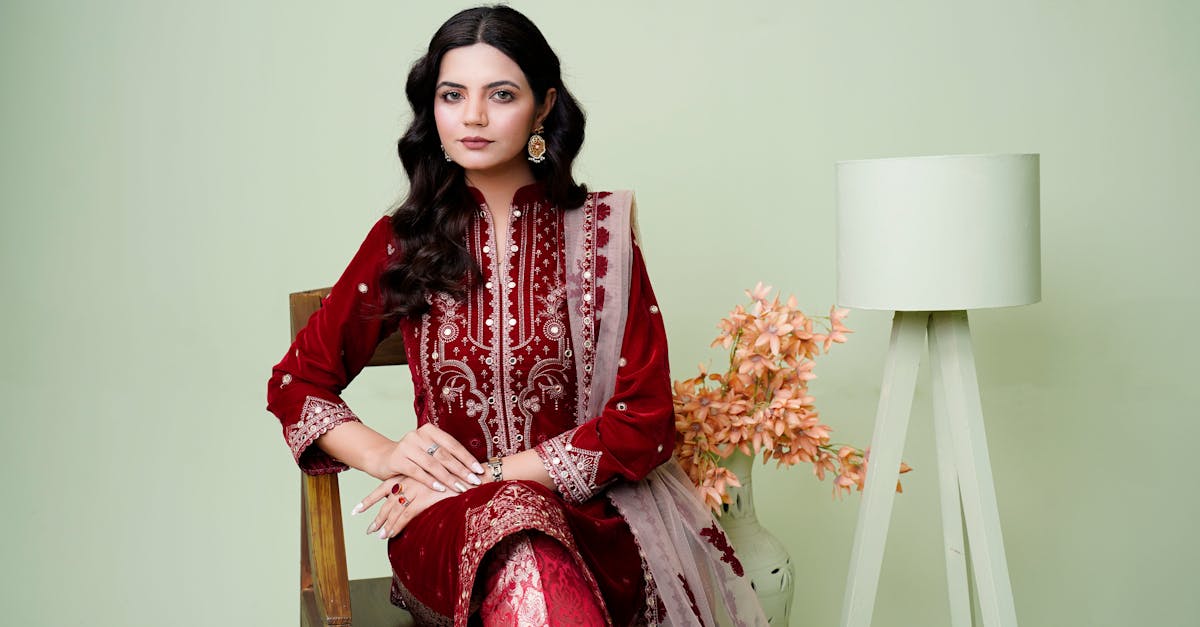Mindful Approach To Style: Embracing Sustainable Fashion
Introduction
In today's fast-paced fashion industry, a mindful approach to style is gaining traction among conscious consumers. This approach emphasizes the importance of sustainability, ethical practices, and intentional choices in clothing. With the growing awareness of fashion’s environmental impact, people are seeking ways to enjoy style responsibly. The mindful approach encourages individuals to think critically about their consumption habits and opt for quality over quantity. It challenges the traditional "fast fashion" model that prioritizes speed and profit over ethics. As the world shifts towards more sustainable living, style is becoming an integral part of this movement.
Advertisement
Understanding the Mindful Approach
The mindful approach to style revolves around awareness and thoughtfulness in fashion choices. It means considering not only aesthetics but also the environmental and social footprint of one's wardrobe. The goal is to create a balance between expressing personal identity and being a responsible consumer. This approach involves questioning the origin of clothes, the materials used, and the working conditions of those who produce them. Moreover, it promotes the idea that clothing should be cherished and cared for, instead of being viewed as disposable. By adopting a mindful approach, individuals contribute to a more sustainable and ethical fashion industry.
Advertisement
Sustainable Fashion Materials
One key aspect of the mindful approach is the use of sustainable materials. These include natural fibers such as organic cotton, linen, and hemp, which require less water and pesticides compared to conventional crops. Innovations in fabric technology have also introduced alternatives like Tencel, derived from wood pulp, and Piñatex, made from pineapple leaves. These materials reduce reliance on petrochemicals and lessen environmental impact. Prioritizing quality garments made from such materials ensures a longer lifespan, reducing the frequency of replacement purchases. Ethical brands often highlight these materials to educate consumers, fostering a more informed fashion community.
Advertisement
Ethical Production Practices
Ethical production is a cornerstone of mindful style. This involves ensuring fair labor practices, safe working conditions, and just compensation for garment workers. Many brands are now transparent about their supply chains, offering insights into who makes their clothes and under what conditions. Supporting these brands contributes to a more equitable industry. Fair trade certifications are one way to identify ethically produced items. Consumers can also look for brands that prioritize local production to reduce carbon emissions associated with transportation. By supporting ethical practices, fashion enthusiasts can wear their values with pride.
Advertisement
Embracing a Minimalist Wardrobe
A minimalist wardrobe aligns seamlessly with the principles of mindful style. This involves curating a collection of versatile, timeless pieces that can be mixed and matched effortlessly. By building a capsule wardrobe, consumers reduce excessive spending and decrease textile waste. Essentials should include high-quality basics and classic silhouettes that transcend seasonal trends. This trend encourages consumers to buy fewer items, focusing on durability and long-lasting appeal rather than fleeting fashion fads. Developing a personal style around a minimalist approach can lead to more satisfaction with less clutter.
Advertisement
Secondhand and Upcycled Fashion
The secondhand market offers an exciting avenue for conscientious style. Thrift stores, vintage shops, and online platforms provide opportunities to find unique pieces with history. Buying secondhand extends the life cycle of garments, tapping into the circular economy. Upcycling—transforming old clothes into new creations—is another innovative way to pursue fashion sustainably. This process sparks creativity and reduces waste, breathing fresh life into forgotten items. Embracing pre-loved or upcycled pieces allows consumers to express their style while minimizing environmental harm.
Advertisement
The Role of Conscious Consumerism
Conscious consumerism plays a pivotal role in the mindful approach to style. This involves making deliberate and informed purchasing decisions, considering the broader impact on the planet and society. Educated consumers can drive change by demanding accountability and transparency from brands. Awareness of issues like sweatshops, pollution, and animal cruelty empowers individuals to support companies championing ethical and sustainable values. The mindful consumer understands that every purchase made is a vote for the kind of world they want to live in, steering the fashion industry towards positive transformation.
Advertisement
Being Fashion-Forward with Mindfulness
Staying stylish and trendy while being mindful is entirely possible. The key lies in creativity, research, and a willingness to explore non-conventional options. Many eco-conscious designers are crafting innovative, ahead-of-the-curve collections that merge style with functionality. Social media platforms abound with influencers championing sustainable fashion, offering inspiration for others. Participate in styling challenges or DIY projects to experiment with personal taste without excessive spending. Accessorizing and customizing wardrobe staples further enhance individuality. With mindfulness, fashion-forward aesthetics and conscious choices can coexist harmoniously.
Advertisement
Challenges and Rewards of Mindful Style
Adopting a mindful approach to fashion presents both challenges and rewards. Transitioning away from fast fashion might initially seem overwhelming, requiring a shift in mindset. Investing in statement pieces often comes with a higher upfront cost, but their longevity justifies the expense over time. Nonetheless, the positive impact on environmental sustainability and personal well-being offers a profound sense of fulfillment. Mindful fashion engenders a deeper connection to clothing, transforming shopping from a mere transaction into a meaningful journey. By facing these challenges, individuals contribute to a more compassionate and thoughtful world.
Advertisement
Conclusion
A mindful approach to style fosters a conscious and sustainable fashion journey that benefits both individuals and the planet. By prioritizing sustainable materials, ethical practices, and intentional consumption, fashion becomes a force for good. Although the transition may require effort and education, the rewards include a more refined wardrobe that aligns with personal values. Ultimately, mindful style offers a path to express individuality while supporting ecological and social well-being. Join the movement today and experience the immense satisfaction of wearing your ethics proudly.
Advertisement








